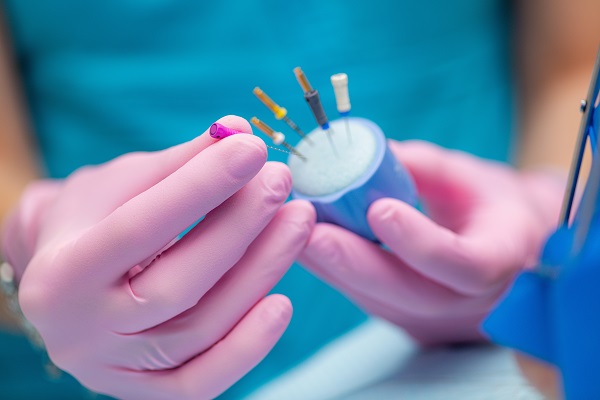How Soon Should I Get a Crown After a Root Canal?

Root canal treatment is often successful at repairing and saving an infected or severely damaged tooth. A crown can be used to restore your tooth after the procedure. But it needs to be put in place at the right time. Read on to learn more about when you should get a crown after a root canal.
Crowns and root canal treatment
After a root canal, a dentist can recommend a crown to restore the tooth. Needing one depends on the location of the tooth in the mouth and the strength of the part of the tooth that is left. Teeth toward the back of the mouth, like premolars and molars, will likely need crowns. These teeth are needed more for chewing, which requires putting a great deal of force on them.
Crowns
A crown is a realistic-looking artificial tooth that is placed over a tooth. It covers the tooth and is usually recommended by dentists because it restores the tooth to its normal size, shape and function. It makes the tooth stronger and improves the way it looks. A dental crown may be needed to protect a weak tooth from breaking and to support and cover a tooth with a large filling.
A tooth that has had a root canal treatment may also need a crown. In this case, it will protect the restored tooth. Crowns can be made from porcelain, gold or porcelain fused to metal. Crowns made of porcelain or porcelain fused to metal can be color-matched to the other teeth. Sometimes, a metal post has to first be inserted in the tooth to keep the crown in place or for structural support.
Crown placement
The final stage of the root canal procedure is restoring the tooth. Because a tooth that needs a root canal usually has a large filling or is weakened from extensive decay, a crown or other restoration usually needs to be placed on it. A crown can help protect the tooth from future damage and return it to normal function. It will also prevent it from breaking.
After the root canal and any follow-up appointments are completed, a patient should return to the dentist for the final crown. The appointment needs to be made as soon as the dentist completes work on the tooth. This will help prevent many problems. If the placement of the crown or other restoration is delayed following treatment, the tooth may fail to heal. In this case, a person may need a second root canal treatment, called retreatment. This procedure can support healing and save the tooth, but it is always advisable for a person to ensure that the crown is placed early.
Contact your dentist today
After a root canal, your tooth may be restored with a crown, and it will continue to function like any other tooth. The crown should be placed as soon as possible after the procedure. This is advisable because it will help protect your tooth and prevent any future problems. If you have any questions about root canal treatment, talk to your dentist.
Are you considering getting a root canal in the Freehold area? Get more information at https://www.sandorfamilydentistry.com.
Check out what others are saying about our dental services on Yelp: Root Canal in Freehold, NJ.
Related Posts
A root canal is a dental technique devised to treat infection or damage within the pulp (the innermost chamber) of the tooth. While the procedure has a reputation for being painful, thanks to anesthetics, it is often no more uncomfortable than getting a filling.While there is no recovery period after getting a root canal, proper…
The goal of preventive dentistry is to keep teeth and gums clean and healthy in order to reduce the risk of cavities and other oral health concerns developing. It is a good idea to have a full understanding of how preventive dentistry can protect your smile and what services a dentist may recommend for cavity…
An emergency dentist can treat toothaches in a variety of ways if the pain becomes intolerable or the symptoms present a risk of worsening and causing other oral health issues if not treated promptly. However, for minor toothaches that can wait until a more convenient time to be scheduled, emergency dentists may provide useful tips…
Your restorative dentist can bring back the integrity of your damaged teeth. Dental damage can result from decay or injury. Your teeth may crack or chip. You may even lose a tooth. Repairing or replacing your teeth is important for your health and well-being. Here are the details about how your restorative dentist can restore…
